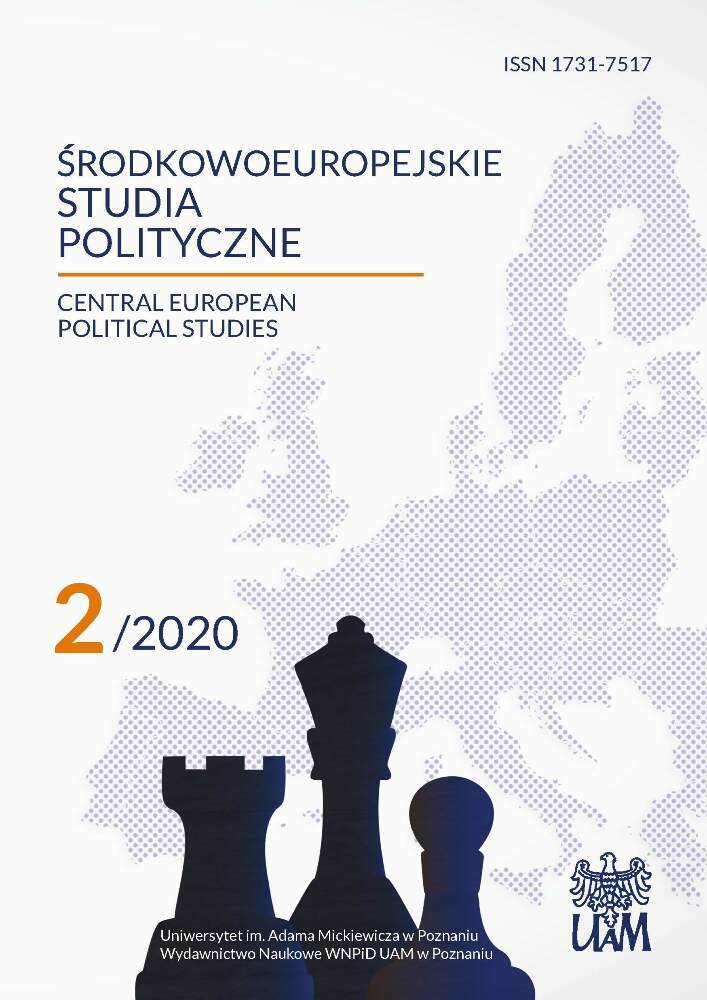Abstrakt
-
Finansowanie
This paper is a result of the research project Contentious Politics and Neo-Militant Democracy. It was financially supported by the National Science Centre, Poland [grant number 2018/31/B/HS5/01410].
Bibliografia
1) I. Ijabs (2016), After the Referendum: Militant Democracy and Nation-Building in Latvia, “East Europe and Politics and Societies and Cultures” No 2(30). – pp. 288-314.
2) K. Loewenstein (1937) Militant Democracy and Fundamental Rights I, “The American Political Science Review” No 3(31) pp. 417-432.
3) J. Marszałek-Kawa (2019), The Institutional Position and Functions of the Sejm of the Republic of Poland after the Accession to the European Union, Odessa 2019.
4) G. Molier G., & R. B. Rijpkema (2018) Germany’s New Militant Democracy Regime: National Democratic Party II and the German Federal Constitutional Courts’s ‘Potentiality’ Criterion for Party Bans: Bundesverfassungsgericht, Hudgment of 17 January 2017, 2 BvB 1/13, National Democratic Party II, “European Constitutional Law Review” No 2(14). pp. 394-409.
5) J-W. Müller, Militant Democracy. M. Rosenfeld & A. Sajó (eds.) The Oxford Handbook of Comparative Constitutional Law, New York 2012.
2) K. Loewenstein (1937) Militant Democracy and Fundamental Rights I, “The American Political Science Review” No 3(31) pp. 417-432.
3) J. Marszałek-Kawa (2019), The Institutional Position and Functions of the Sejm of the Republic of Poland after the Accession to the European Union, Odessa 2019.
4) G. Molier G., & R. B. Rijpkema (2018) Germany’s New Militant Democracy Regime: National Democratic Party II and the German Federal Constitutional Courts’s ‘Potentiality’ Criterion for Party Bans: Bundesverfassungsgericht, Hudgment of 17 January 2017, 2 BvB 1/13, National Democratic Party II, “European Constitutional Law Review” No 2(14). pp. 394-409.
5) J-W. Müller, Militant Democracy. M. Rosenfeld & A. Sajó (eds.) The Oxford Handbook of Comparative Constitutional Law, New York 2012.
Licencja
Prawa autorskie (c) 2023 Kamila Rezmer-Płotka

Utwór dostępny jest na licencji Creative Commons Uznanie autorstwa 4.0 Międzynarodowe.
